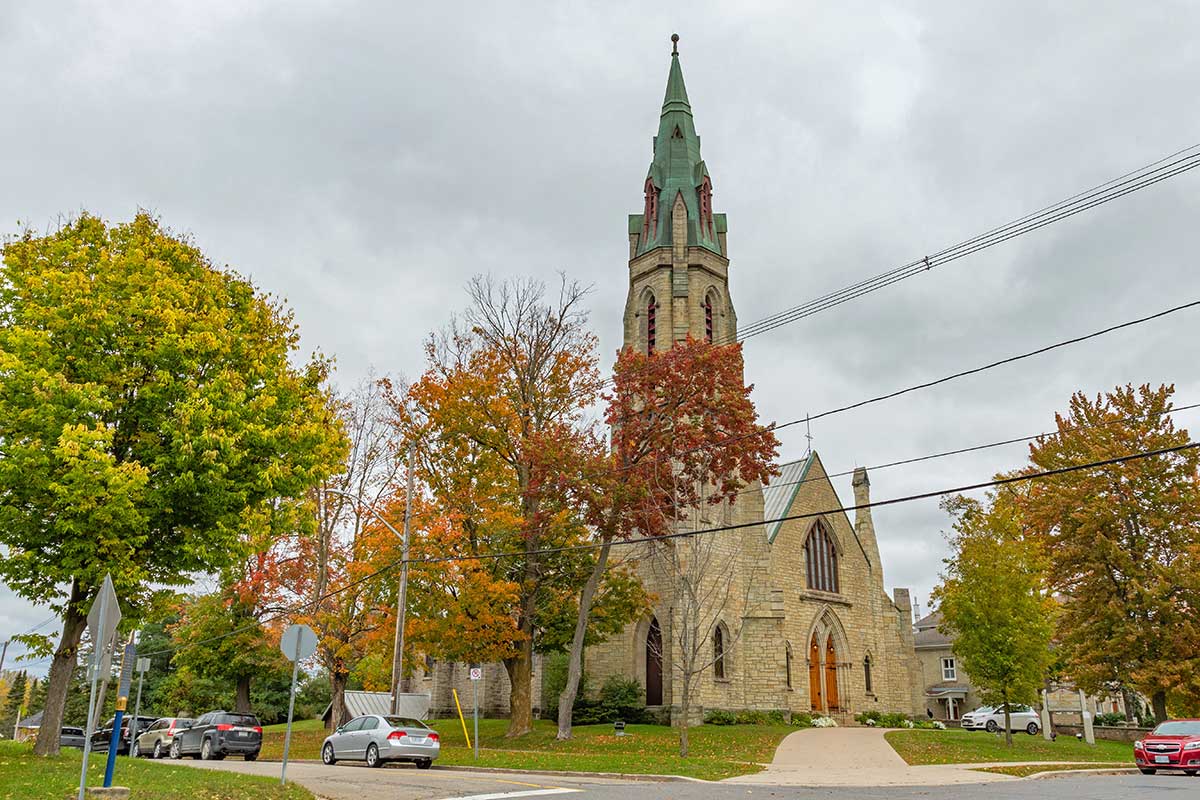The parish of St. James, Perth, is developing a plan to create badly needed affordable housing using existing buildings.
It’s based on the successful housing of four Syrian refugee families in the town of 6,000 from 2015 to 2019. Members of St James played a significant role, working with the Community Alliance for Refugee Settlement (CARR), many volunteering time and donating money.
The refugee housing project was based on upgrading existing buildings to acceptable living standards. The community organization approached owners with offers to renovate buildings and add furnishings and appliances. There was enthusiastic uptake from participating owners. Much of the work was completed with donated time and expertise.
The result was a win-win: families were well housed. The owners ended up with improved properties. And they were guaranteed a year’s rent – a requirement under the refugee sponsorship program. The community organization raised more than $150,000 to cover responsibilities under the refugee settlement agreement.
“It really was the most powerful Christian witness from St. James to the people of Perth in many years,” the Rev. Kenneth Davis says.
But while the program was successful, many in the town felt that more should be done to help existing residents in need. “It’s time to do more in that other part of our mission,” Davis says. “There are more than 800 on a waiting list in Lanark County for affordable housing, more than 70 of whom are women and some children fleeing from violence who are on a special priority list.” Local people experiencing homelessness are being housed temporarily in motels.
Davis is working with David Kroetsch, chair of the parish outreach committee, to present a concrete plan on behalf of the parish to a virtual town hall meeting organized by the advocacy office of the town’s Table Community Food Centre in the spring.
Davis is under no illusions that it will be easy.
But he hopes to enlist the support of partners, get the project going and then perhaps even step back. It will be more complicated to house Canadians with particular needs — mental and physical health, addictions, for example – than displaced but healthy refugees. He favours the “housing first” model championed by the Canadian Alliance to End Homelessness whereby safe and secure housing is combined with a full range of supports.
Davis is optimistic about a community-based fundraising campaign, pointing to examples of parishioners who have raised several thousand dollars with personal initiatives.
Experience from the refugee project has shown that the community will respond to a realistic plan and proven need.
The goal will be a multi-year project to develop several units, the exact number to be determined. “I think we can make a concrete difference for people needing housing – a few individuals or families a year.” Working with Lanark County, tenants would be selected from the county’s long waiting list.
Inspiration comes from Terrilee Kelford, the chair of Cornerstone Landing Youth Services and co-chair of the Alliance to End Rural and Remote Homelessness. She created three housing units for youth where there had been one by renovating a single house into two units and installing a third “tiny house” on the property.
Davis hopes to emulate Kelford’s success by creating an adult version of her project — finding and renovating housing and where suitable adding a tiny home to a property.
As the parish moves forward to implement its vision it is demonstrating support for the Diocese’s campaign of engagement in the cause of alleviating homelessness and support for affordable housing.


Week of Prayer for Christian Unity annual service to be celebrated at Saint Paul University on Jan. 22